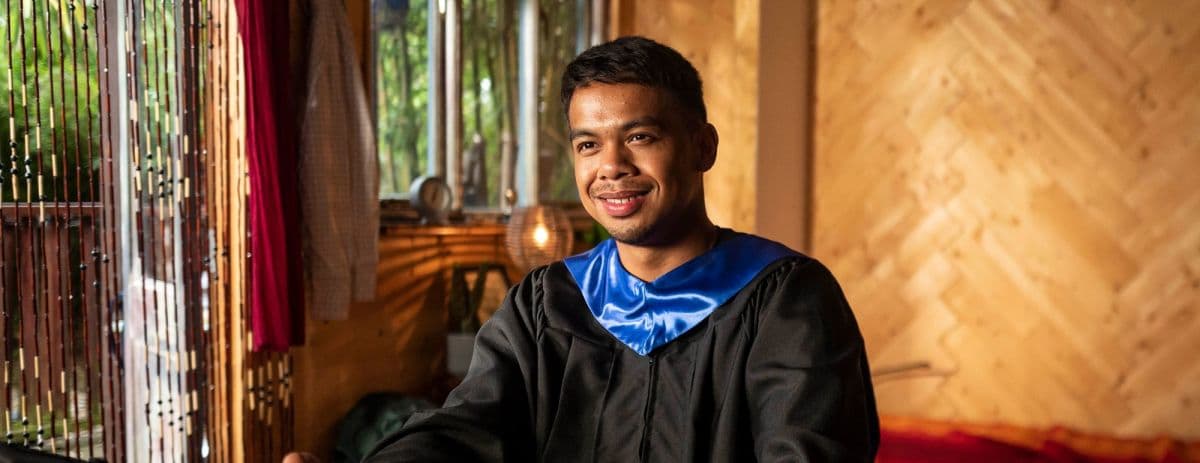Ramadan around the world in 2021
Ramadan is so much more than a period of fasting: it is a holy month rooted in culture, faith and history. In 2021, it is estimated that 1.9 billion* Muslims across the globe will observe this holy month. How they celebrate varies from country to country with differences in local culture and traditions.
A large number of WorldRemit’s customers will be observing Ramadan, and so will many of its employees. Four WorldRemit employees from around the world share their personal insights on the significance of Ramadan for them and what celebrations they have planned for this year.
WorldRemit Content Team
• 3 mins read • Updated
Irrespective of background or country, Ramadan is a time of prayer, fasting, reflection, charity and community for all Muslims.
Country Director for South Asia, Ruzan Ahamed shared his thoughts:
“Ramadan is a time for us to understand and be thankful to God for what we are blessed with and to always think of others. This is the time to think of the needy - to help them in a way that can support a change in their circumstances, by paying zakah. Zakah is charity and is one of the five pillars of Islam. After prayer it is the second most important deed for Muslims who are financially able, to give 2.5 percent of their annual savings as zakah to the needy. Ramadan is the time when they choose to do so, as it is a blessed month.”
Farah Ahmed, Content Strategist based in London, UK said:
“I personally reflect on areas of my life that need improvement. This year, I will be focusing on eating and drinking at moderate levels. I feel the third lockdown in the UK has been focused on self-indulgence with food overload and I would like to use the holy month to detox. Personally, thinking of those who are less fortunate is paramount to the holy month. Ramadan for me is always about giving to charity - whether that is through charitable work or digging deeper into my wallet. I usually send money to my family in Mauritius, as well as giving money to Muslim charities in the UK to help those who need it most.”
During Ramadan many will pray and read the Quran. However, other customs and rituals do differ from country to country.
Ridzuan Aziz, Country Director for Malaysia explained what a typical day during the month of Ramadan looks like for him:
In the early morning a simple meal is eaten before dawn in preparation for fasting during the day ahead. He will then abstain from food and drink throughout the entire day, and pray at specific times. At dusk, he will break his fast to celebrate the completion of fasting for the day. Ridzuan will then proceed with a night prayer at the mosque where other congregants gather to perform additional prayers for about 1.5 hours. This is a time to express gratitude and thanks to the Creator.
As the world continues to navigate through varying lockdown restrictions, for a second year activities during Ramadan have been curtailed. That being said, Muslims have adapted their rituals to remain compliant whilst observing and celebrating Ramadan with the likes of video-conferencing replacing in-person meals and prayers.
In Australia, more socialising will be able to take place this Ramadan compared to last year. Magda Ali, Senior Compliance Analyst based in Sydney said:
“because of international travel restrictions I will not be able to travel to Egypt to spend time with my family. Even though I am constantly connecting with my family by phone and video calls, I particularly miss them this time of the year. I will be making sure that I send more money back home to support Egyptian charities and for those in my community who are less fortunate”.
For Ridzuan, who resides in Kuala Lumpur, Ramadan this year will look a little different to 2020. “As lockdown restrictions ease for many in Malaysia there are still limitations but the new norms have taught us to be more caring about our loved ones highlighting the importance of being in touch. We frequently organise video calls, ask about their state of physical and financial health and assist them where possible. Keeping in touch and providing for each other are key elements during this trying time and more so during Ramadan.”
Those who practice Islam are encouraged all the time but particularly during Ramadan to be more compassionate, charitable, abstain from bad habits, vices and focus on their spiritual wellbeing.
Ridzuan says, “Ramadan is a journey that requires both spiritual and physical commitment that has several phases. Spiritually, one needs to have the mindset and attitude of being a better person. Physically you need to perform fasting by abstaining from food, drink and conduct that would nullify it - from dawn to dusk for 30 days straight.”
“Ramadan is all about reflection and contemplation. How I do this is by engaging in prayer outside of the five times of daily prayer, which is mainly done at night. I recite the Quran and try to understand the meaning by reading and listening to great scholars. What is also important is to reflect upon the life of Prophet Muhammad (Peace Be Upon Him) and how he lived, and incorporate those practices into my life over the year ahead.” Ruzan explains.
Over the 30 days Muslims will use Ramadan to focus on their spiritual connection to God, reflect upon their lives and how they can improve oneself, thinking of and being more charitable to the less fortunate, and spending quality time with friends and family.
*https://worldpopulationreview.com/country-rankings/muslim-population-by-country
Back to homeWorldRemit allows customers to stay connected and support their loved ones. Our Content Team plays an integral part in that. We celebrate the global community and help you to achieve your ambitions.




